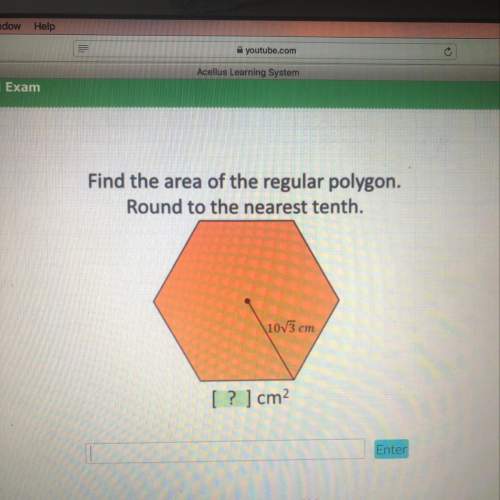
Mathematics, 19.07.2019 15:00 kate5582
For each question below, identify if first number is divisible by the second number, and if so, the reason why. is 26 divisible by 2? a. no b. yes, because 2 + 6 = 8 and 8 is divisible by 2. c. yes, because the last digit is 6, which is divisible by 2. is 216 divisible by 3? a. no b. yes, because the sum of 2 + 1 + 6 = 9, which is divisible by 3. c. yes, because the last digit is 6, which is divisible by 3. is 40,100 divisible by 10? a. no b. yes, because there is a 10 in the number. c. yes, because the last digit of the number is 0. is 318 divisible by 9? a. no b. yes, because the last two digits are 18, which is divisible by 9. c. yes, because the sum of the digits is 3 + 1 + 8 = 12, which is divisible by 3, and all numbers divisible by 3 are divisible by 9. is 87,235 divisible by 5? a. no b. yes, because the last digit of the number is 5. c. yes, because the sum of the digits is 8 + 7 + 2 + 3 + 5 = 25, which is divisible by 5. is 43,121 divisible by 3? a. no b. yes, because the last two digits of the number are 21, which is divisible by 3. c. yes, because the sum of the digits is 4 + 3 + 1 + 2 + 1 = 11, which is divisible by 3. is 1, 112 divisible by 5? a. no b. yes, because the last digit in the number is 2. c. yes, because 1 + 1 + 1 + 2 = 5, which is divisible by 5. is 10,000,058 divisible by 10? a. no b. yes, because the last digit is an even number. c. yes, because the first two digits of the number are 10. is 94,032 divisibly by 9? a. no b. yes, because the sum of the digits is 9 + 4 + 0 + 3 + 2 = 18, which is divisible by 9. c. yes, because the value of the first digit is 9, which is divisible by 9. is 201,086 divisible by 2 a. no b. yes, because all of the digits are even numbers. c. yes, because the last digit in the number is 6, which is an even number.

Answers: 1


Another question on Mathematics

Mathematics, 21.06.2019 22:30
Complete the equation of the live through (-1,6) (7,-2)
Answers: 1

Mathematics, 22.06.2019 01:20
Aprobability experiment is conducted in which the sample space of the experiment is s={7,8,9,10,11,12,13,14,15,16,17,18}, event f={7,8,9,10,11,12}, and event g={11,12,13,14}. assume that each outcome is equally likely. list the outcomes in f or g. find p(f or g) by counting the number of outcomes in f or g. determine p(f or g) using the general addition rule.
Answers: 2

Mathematics, 22.06.2019 02:00
Which expression represents the total perimeter of her sandwich, and if x = 1.2, what is the approximate length of the crust?
Answers: 2

Mathematics, 22.06.2019 02:00
Pls what is the relative minimum of the function? enter your answer in the box
Answers: 3
You know the right answer?
For each question below, identify if first number is divisible by the second number, and if so, the...
Questions



Mathematics, 08.03.2021 19:40

Mathematics, 08.03.2021 19:40

English, 08.03.2021 19:40



Physics, 08.03.2021 19:40

Computers and Technology, 08.03.2021 19:40






Mathematics, 08.03.2021 19:40

Mathematics, 08.03.2021 19:40

Chemistry, 08.03.2021 19:40

Social Studies, 08.03.2021 19:40

English, 08.03.2021 19:40




